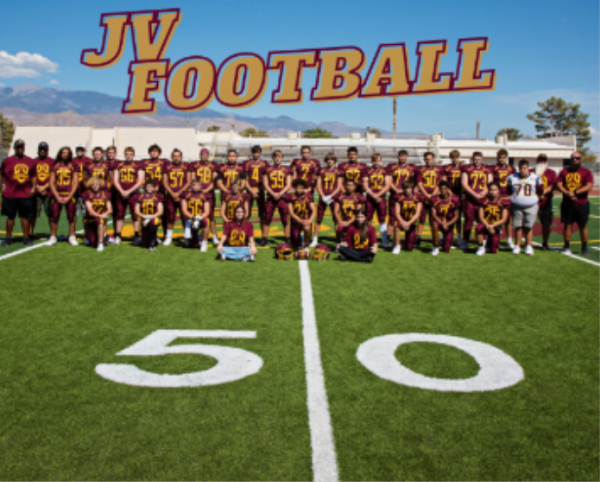The Completely Appropriate World of Adult Animation
Animated Sitcoms, as some may call them, have been around since the Flintstones, and have mostly developed from there.

Turning on the television today, all that comes through the screen are blinding colors and a cacophony of canned laughter and forced jokes.
The modern TV scene appeals to an audience with short attention spans, and the shows that do move more slowly are shunned for it.
That being said, the contemporary, short, impatient stories are not unique to the present. It’s impossible to talk about modern TV, especially animated sitcoms for adults without travelling to the 1960s.
Arguably, the first animated sitcom was the Flintstones, made by Hanna-Barbera. It featured a modern American family, or prehistoric Bedrockian family, take your pick.
The success of the Flintstones led to the creation of the Jetsons, who were essentially the same plot line, except that robots replaced dinosaurs. The people stayed the same.
These early animated sitcoms paved the way for the shows that entertain college students and moody teenagers alike. The Mayflower of modern cartoons that appeal to an older audience is the classic and current show The Simpsons.
The Simpsons is one of the longest running television shows of all time (it’s been running for nearly 30 years), and is ingrained in the memory of nearly every American not under a rock.
Phrases like “meh” or “d’oh” are commonplace in America, and it’s all due to Matt Groening, the mind behind the Simpsons.

Groening continued to produce Simpsons episodes, and started on a new hit, Futurama. Although not as popular, Futurama appealed to the Sci-Fi nerds who couldn’t get everything they wanted out of the Simpsons.
The success of these two shows spawned innumerous rip-offs that changed the familiar formula the Simpsons used all too often.
Seth MacFarlane stands opposite Groening in the animation world. MacFarlane produces shows like American Dad, The Cleveland Show, and Family Guy, which are all rivals to the aging Simpsons.
All these shows follow the same formula–a modern American family with dysfunctional tendencies get into wacky hijinks via their own misguided attempts to succeed.
These shows are modelled to be relatable, and you could see it that way, or you could view it as appealing to the lowest common denominator of comedy.
You could laugh at the relatability of having a bumbling dad or an overly doting mother, a mischievous brother or a know-it-all sister. Even owning a pet contributes to the Americana aesthetic these shows draw their ideas from.
A changeup of this formula is what the industry desperately needed. Along came Matt Stone and Trey Parker.
There are claims that South Park is just a bunch of bad humor wrapped in a poorly animated package, but clearly many disagree.
Since 1997, the four South Park boys have been entertaining their viewers with jokes that are supposed to offend everyone. From Kenyans to Tom Cruise, the show has knocked everyone down a couple of pegs.
The new brand of offensive humor has been South Park’s main gimmick for two decades, but this show didn’t exterminate storytelling in animated sitcoms.
Shows like Bojack Horseman, in which an famous actor turned alcoholic deals with a midlife crisis in the middle of a Hollywood (later Hollywoo) that also happens to be filled with tailess animals that stand on two legs, have plotlines and character growth that rival more formal storytelling mediums.

Bojack Horseman’s niche is satirizing celebrity culture, mainly the dehumanizing aspect of it, as well as more animal puns than you can shake a stick at.
Another more family friendly animated sitcom is Bob’s Burgers which removes the toxic nuclear family most shows shove down your throat in lieu of a family that actually loves each other and works through their problems.
That doesn’t make for that good of television, so naturally shenanigans occurs as well, usually involving the titular character’s burger shop as he struggles to pay bills and love his family.
Bob’s Burgers depicts a very accurate family dynamic, with inside jokes between the characters and healthy sibling relationships between Bob’s three children. It’s the version of Americana shows should strive to draw from, not the unhealthy behavior of the Griffins and Simpsons.
It seems that every group has had an animated show directed towards them, and no niche show has become more mainstream than the beloved Rick and Morty.
This show is generally seen as an appeal to the geek culture that loved movies like Back to the Future or Star Wars, and it’s filled with references every nerd could latch on to and adore.
Unfortunately, a stigma has arisen around the audience, which appear to have developed into a group of individuals who endlessly promote their own intelligence in an endless cycle of self-promotion that is obnoxious to everyone not caught in the community, because of the jokes involving science and math that make them feel smarter without needing to be.
This is the kind of culture these shows can develop. Every episode of every show mentioned has impacted a group of people somehow. People are saying “D’oh” in the streets, mocking Tom Cruise and Scientology in their homes, and creating personality quizzes on the Internet to see what kind of animal they’d be.
It’s a difficult situation to be in as a producer. Stone and Parker have had to deal with constant criticism from parents about the impact their show has had on their children.
In response, Stone has spoken out, explaining that kids aren’t that great of people, and that parents “have an idyllic vision of what kids are like.” In my opinion, parents are just looking for an explanation to their kids crappy behavior that doesn’t lead to the adults being at fault.
The National Library of Health and Medicine has concluded that “there is a relationship between watching violent television programming and an increase in violent behaviour by children,” which I think is a misguided statement. These shows are aimed towards adults. The fact that children and teens watch them is not their fault.
Besides, what else would I watch if they didn’t shout expletives every sentence?






Karley Broadhead • Mar 27, 2018 at 1:55 PM
This article is very well written and I like that you addressed multiple cartoons and not just the most common ones that many people watch today. I see some of the episodes that I have watched as a kid and I am just now understanding some of the jokes that I didn’t understand when I was younger.
Marissa • Mar 26, 2018 at 10:00 AM
This article is very well written. While I, myself do not particularly like these shows because of the crude humor, it is very entertaining to watch other cartoons like the Flintstones like you had mentioned earlier. Very fond of your explanation of how these shows had a way to help us cope with real life issues.
Reagan Adams • Mar 21, 2018 at 10:32 AM
Well-made article. Really appreciate these shows. practically grew up on Family Guy, mainly where my sense of humor comes from. I really appreciate the raunchy shows that take modern day issues and transform them into comedy for others to enjoy. We joke about unsettling things to make us feel that we have control of these situations happening in our world. These shows give us comfort with certain topics that are difficult for others to discuss.
Luis Garcia • Mar 21, 2018 at 9:16 AM
Very well written article and very well said.